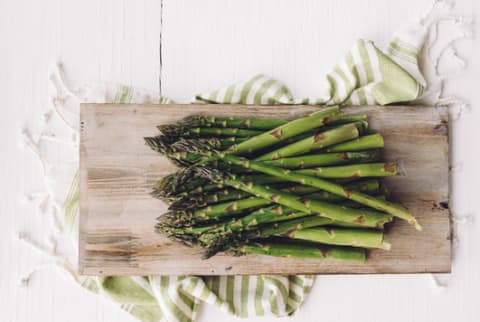Advertisement


By now, everyone has heard a lot about probiotics or "good bacteria" for your GI tract, but many people don't know as much about prebiotics and how they help the gut.
Probiotics are good bacteria that help with digestion and more, and more research is on the rise correlating probiotics and many different ailments. You can get them in capsule form or eat more probiotic-rich foods like yogurt, kefir, kimchi, sauerkraut, and miso. Prebiotics, on the other hand, are food for the probiotics to eat.
Prebiotics are nondigestive fiber in the large intestine that stimulates and enhances the growth of probiotics. Butyric acid is a by-product that is produced when the good bacteria break down the prebiotic fiber-rich foods. When this happens, it makes it less likely that the "bad bacteria" will survive and colonize the colon, so you need both probiotics and prebiotics for your GI tract to stay healthy.
When probiotics have enough prebiotics-rich food to eat, your gut will work optimally, function better, and you'll be healthier because your gut bacteria is happy and fed well.
Prebiotic fiber is also shown to help with weight management and encourage weight loss. Try to aim for 5 grams of prebiotic foods a day. There are additional inulin prebiotics supplements you can take, but I always encourage getting your nutrition through your diet first.
These are five prebiotics foods you didn't realize you were eating, so I encourage you to eat more to feed your friendly bacteria in your gut!
Garlic
Garlic is a common ingredient in my cooking. The fiber found in garlic is a great prebiotic by promoting healthy growth of good bacteria in the gut while warding off the unhealthy bacteria from thriving.
The compound allicin also has wonderful medicinal properties. It's a potent antibacterial, antiviral, and anti-inflammatory agent. It's excellent for cardiovascular health, improving blood pressure as well as cholesterol levels when tolerated. It can also improve your immune system and help when you're feeling like you're getting a cold.
Onions
Onions are also a staple in my cooking; however, raw onions are better because they contain sulfur compounds that are full of vital nutrients, and cooking can kill off the sulfur. The fiber in raw onions helps improve the good bacteria in your gut as well as improving your immune system because it's rich in vitamin C.
Onions also contain quercetin, which is great for improving allergies and is considered an anti-inflammatory. Be careful to only remove as little of the outside peel of an onion, as that's thought to be one of the most nutritious parts, with the highest amounts of antioxidants.
Jicama
Jicama is a favorite snack of mine. Not only is it low in calories (practically zero), but it's a great prebiotic and can help you lose weight by keeping you full. It lowers blood glucose and helps with insulin sensitivity. It's also a great source of fiber and fights free radicals because it's high in antioxidants. It's full of vitamins like vitamin C, which improve your immune system, as well as minerals like magnesium, manganese, and iron. You can saute it, add it to salads, or eat it with hummus!
Asparagus
Asparagus is readily available and is a great easy source of prebiotics. Raw is ideally better, but lightly sauteing will also do the trick. Asparagus is a great detoxifying food as it helps break down toxic compounds and free radicals. It's also a natural diuretic so it decreases swelling and fluid retention.
Apples
An apple a day really does keep the doctor away! Apples are full of fiber and pectin, which stimulate prebiotics. Gut bacteria loves this fiber, and apples are also in season right now. Most people don't realize how beneficial this fruit really is. It's full of antioxidants and polyphenols, which are perfect for reducing free radicals, which may contribute to harmful cancers.